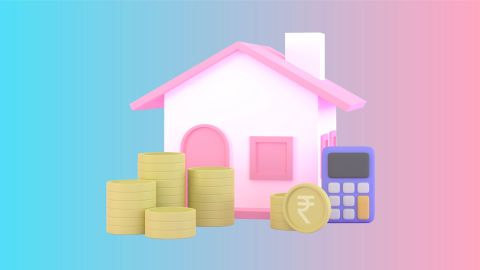The income tax structure in India is designed to tax individuals based on their income levels. For the assessment year (AY) 2024-25, the income tax slab for salaried individuals has undergone certain changes. It is crucial for salaried persons to understand these slabs to plan their finances effectively. This article will delve into the details of the income tax slab for AY 2024-25 for salaried person, ensuring income tax planning becomes effortless.
Old tax regime vs. new tax regime
India offers two tax regimes: the old tax regime with exemptions and deductions, and the new tax regime with reduced tax rates but without exemptions. Here’s a breakdown for AY 2024-25:
Old tax regime
- Up to Rs. 2.5 lakh: No tax
- Rs. 2,50,001 to Rs. 5,00,000: 5%
- Rs. 5,00,001 to Rs. 10,00,000: 20%
- Above Rs. 10,00,000: 30%
New tax regime
The new tax regime offers simplified tax slabs with reduced rates but without most exemptions. The slabs are:
- Up to Rs. 3 lakh: No tax
- Rs. 3,00,000 to Rs. 6,00,000: 5%
- Rs. 6,00,000 to Rs. 9,00,000: 10%
- Rs. 9,00,000 to Rs. 12,00,000: 15%
- Rs. 12,00,000 to Rs. 15,00,000: 20%
- Above Rs. 15,00,000: 30%
For salaried individuals, the choice between the old and new tax regimes should be made based on their eligibility for deductions and exemptions. It is essential to calculate the tax liability under both regimes and choose the one that offers the maximum tax benefit.
Additional benefits and deductions for salaried individuals
Salaried individuals often benefit from various deductions and exemptions. These include:
- Standard deduction: For AY 2024-25, the standard deduction is Rs. 50,000, which is applicable under both tax regimes. This deduction is available to all salaried individuals, reducing their taxable income directly
- House Rent Allowance (HRA): HRA is another significant component for many salaried individuals. The exemption on House Rent Allowance is subject to the least of the following:
- Actual HRA received
- Rent paid minus 10% of salary
- 50% of basic salary (if living in a metro city) or 40% of basic salary (if living in a non-metro city)
- Home loan benefits: One of the significant financial products that salaried individuals can leverage is a home loan. The benefits are twofold: the interest paid on the home loan and the principal repayment under Section 80C.
- Interest deduction under Section 24(b): For a home loan, interest on the loan is deductible up to Rs. 2 lakh under Section 24(b). This benefit is crucial for reducing the taxable income, especially for those who have availed of a home loan for purchasing or constructing a house.
- Principal repayment under Section 80C: Under Section 80C, the principal repayment of up to Rs. 1.5 lakh is deductible. This deduction also includes investments in Public Provident Fund (PPF), Employees' Provident Fund (EPF), and National Savings Certificates (NSC).
Other topics you might find interesting |
|||
Bajaj Housing Finance Home Loan
When considering a home loan, Bajaj Housing Finance offers competitive interest rates and flexible repayment options. Whether you are a first-time homebuyer or looking to refinance, our home loan comes with various benefits, including:
- Easy documentation: Streamlined process with minimal paperwork.
- Attractive interest rates: Competitive home loan interest rates that make your loan affordable.
- Long repayment tenure: Options to choose a tenure that suits your repayment capacity.
Maximising tax savings
- Health insurance: A critical component of financial planning is health insurance. Salaried individuals can claim deductions under Section 80D for premiums paid for health insurance policies. For AY 2024-25, the deduction limit is Rs. 25,000 for self, spouse, and children, and an additional Rs. 25,000 for parents (Rs. 50,000 if parents are senior citizens).
- National Pension Scheme (NPS): Under Section 80CCD(1B), an additional deduction of Rs. 50,000 is available for contributions to the NPS. This can be an excellent way to enhance your retirement corpus while enjoying tax benefits.
- Tax-saving Fixed Deposits (FDs): Tax-saving fixed deposits, under Section 80C, offer a lock-in period of five years and a maximum deduction of Rs. 1.5 lakh. These FDs can be a stable investment option, providing both returns and tax benefits.
Understanding the income tax slab for AY 2024-25 for a salaried person is crucial for effective financial planning. By leveraging the various deductions, exemptions, and financial products available, such as home loans from Bajaj Housing Finance, health insurance, and NPS, salaried individuals can optimise their tax liability and secure their financial future.
Popular calculators for your financial calculations |
||




